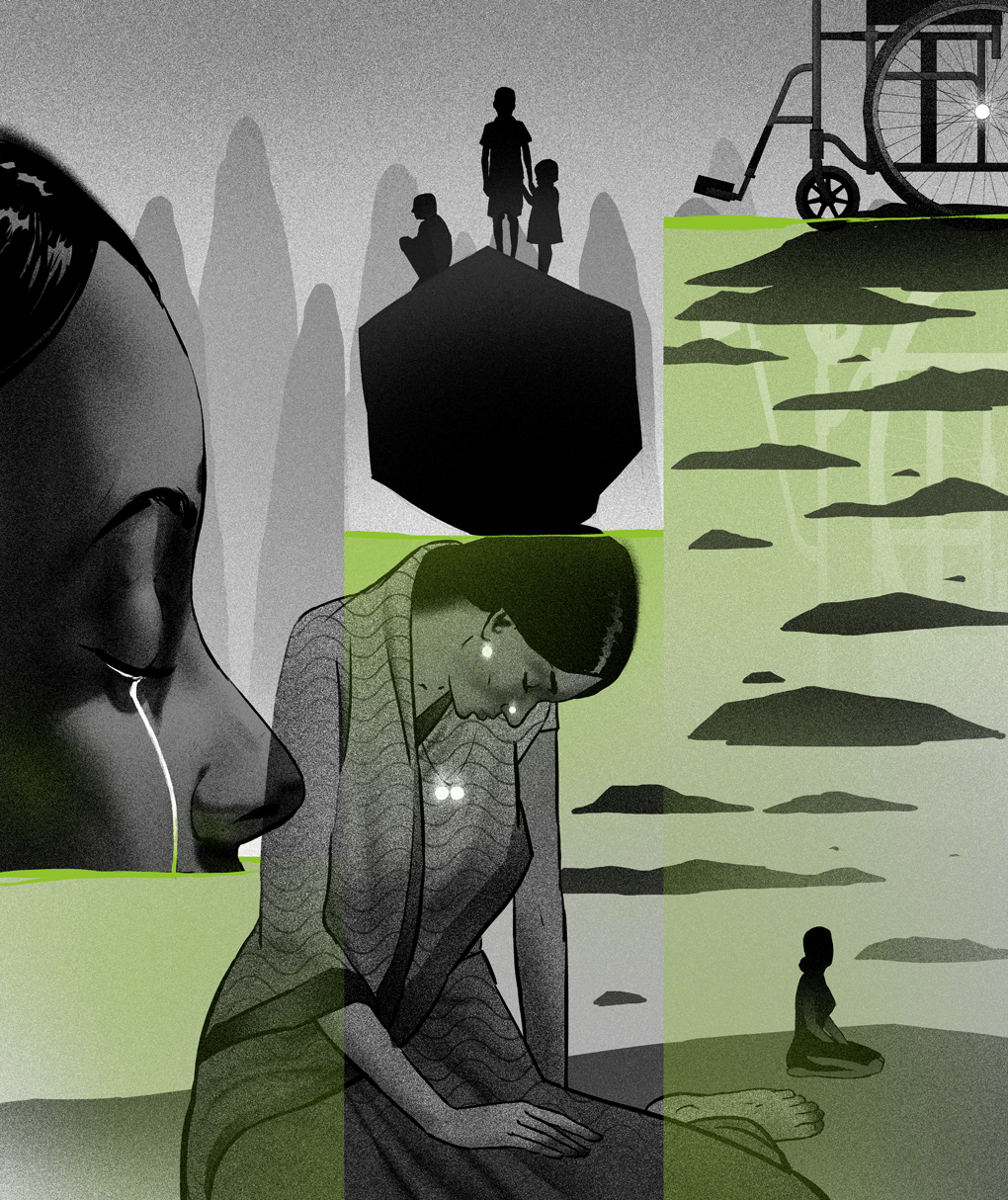Mahanadi Delta and the impact of climate change on women with psychosocial disabilities
For this article, only psychosocial disability case data has been included:
Padma is 30 years old and hails from the Mahanadi Delta on the Odisha coast of India. As the sea level rose, her village was washed away and the family was forced to move inland. They had been farmers and now their land was lost. For the sake of her physical and food security, Padma was married off to a farmer when she was just 15. She lives with a psychosocial disability, and when her husband passed on, and with three children to take care of, her mental health worsened. Padma took on farm work to provide for her children, but the challenges never abated. The sea rose again and salinated her land, forcing the farming to be abandoned. Today, she lives in a small, one-room thatched house on the edge of the eroding sea coast that continues to be affected by frequent disasters. She has joined a demand-driven livelihood program for the Indian rural population called NREGA (National Rural Employment Guarantee Act) which provides work for 100 days in a year, but neither work days nor wages have been regular. Her eldest daughter, only 12-years-old, has left school and is waiting to get married. The sons attend a nearby school where mid-day meals are provided to the students. Despite the vulnerability consequent to loss of livelihood, Padma has found work and maintains social contacts within the village. She has, however, found no place in the government’s relocation planning or adaptation plans for climate change.
Originally from a coastal village that no longer exists, Jyotsana moved to a smaller village with her fisherman father and family. Fishing as an industry has had limited growth in this region, and as the fish quality deteriorated, so did the family income.
As the sea surged, Jyotsana’s mother began to fear that the water would enter their home. The trauma affected her capacity to work and 14-year-old Jyotsana had to leave school to take care of her siblings. Her mother’s mental anguish was deepened by the loss of the community that had originally existed around them. To ensure that she would be around people she had known before, the family decided to move closer to a relocated colony. This helped her find mental support and relief. Jyotsana’s father meanwhile started a micro business to be able to pay for their food. Though India’s Public Distribution System (PDS) is designed to help ensure food security for underprivileged communities, Jyotsana’s family hasn’t been able to access it as they have no papers to prove their identity. These records are tied to geographical location and there is no allowance for portage of entitlements. So, the family continues to live on the edge of nutritional insecurity.
Kanchan lives within the Mahanadi Delta hotspot region and belongs to a community that has been designated as Scheduled Caste. The breeze here is strong, and the constant stress of the sea level rising and moving inland has affected her psychologically. The effect on her has been severe enough to cause a stroke that has led to paralysis. A frontline (ASHA – Accredited Social Health Activist) worker, she can no longer earn as her mobility is limited due to inability to access a wheelchair. Life at home is challenging due to the unavailability of a toilet inside. Kanchan admits that the situation has led to suicidal ideation, and that she has not been able to even reach the sea so as to consider drowning. Her son has now migrated and the remittances from him have been providing for her food and medical care.














